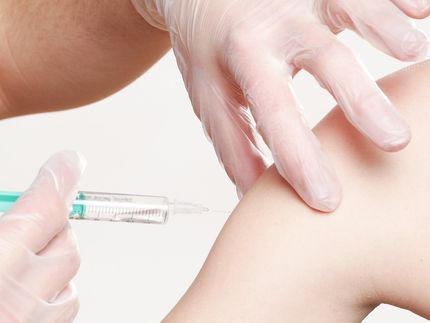BioVeris Expands Business Model to Target the Fields of Immunogenicity, Vaccines and Vaccination Services
BioVeris Signs Option Agreement with Children's Hospital & Research Center at Oakland
Advertisement
BioVeris Corporation announced that it is expanding its business model to target the fields of immunogenicity, vaccines and vaccination services. The Company has introduced its proprietary products for testing protein-based therapeutics and is developing a proprietary approach for determining an individual's personal immune status through a unique diagnostic test panel. In conjunction with the new efforts, the Company has entered into an exclusive option agreement with Children's Hospital & Research Center at Oakland (CHRCO) for the right to negotiate for exclusive patent rights to a unique vaccine candidate for Neisseria meningitidis serogroup B, which causes meningitis. The Company also announced that it has filed a patent for a proprietary approach to determine an individual's personal immune status.
Diagnostic testing of an individual's immune status will provide information about a person's susceptibility to infectious diseases including diseases for which vaccines exist or are being developed. In addition, the establishment of a database on immune status and vaccination history may assist in identifying certain population groups, such as school children, college students, military personnel and the elderly, which are at risk for diseases such as pneumonia and meningitis that can be prevented by vaccination. The Company expects to be able to offer unique and proprietary diagnostic test panels that would assess an individual's personal immune status and establish a database for individuals in various population groups. Such products and services should support initiatives such as the strategic plan of the Centers for Disease Control which is developing an immunization registry and the recent Health Information Technology Initiative of the U.S. Department of Health and Human Services.
Under the agreement with CHRCO, the Company will exclusively negotiate for exclusive rights to commercialize products for possible use in the prevention, diagnosis and treatment of disease, such as Neisseria meningitidis serogroup B. The option agreement contemplates that the Company will sponsor up to $800,000 of research at CHRCO over a two-year period and make additional payments for license fees, milestones fees for initiating and completing human clinical trials and receiving regulatory approvals, and royalties on product sales.
Meningococcal disease is a bacterial infection that strikes approximately 1.2 million people worldwide each year, causing meningitis or sepsis in the majority of cases. Approximately 10 percent of the individuals who contract meningococcal disease will die. Of the survivors, up to 20 percent suffer long-term permanent disabilities such as hearing loss, brain damage and limb amputations. Meningococcal disease often begins with symptoms that can be mistaken for common viral illnesses, such as the flu. It can progress very rapidly and kill an otherwise healthy young person in 48 hours or less. Communitywide outbreaks can persist for several months and controlling them remains a major challenge in public health. Currently, there is no vaccine available against disease caused by meningococcal serogroup B, which is responsible for one-third of meningococcal disease in the United States and up to 90 percent worldwide. The availability of an effective vaccine that would prevent meningococcal serogroup B, for use by various population groups, could meet a significant unmet medical need.






















































